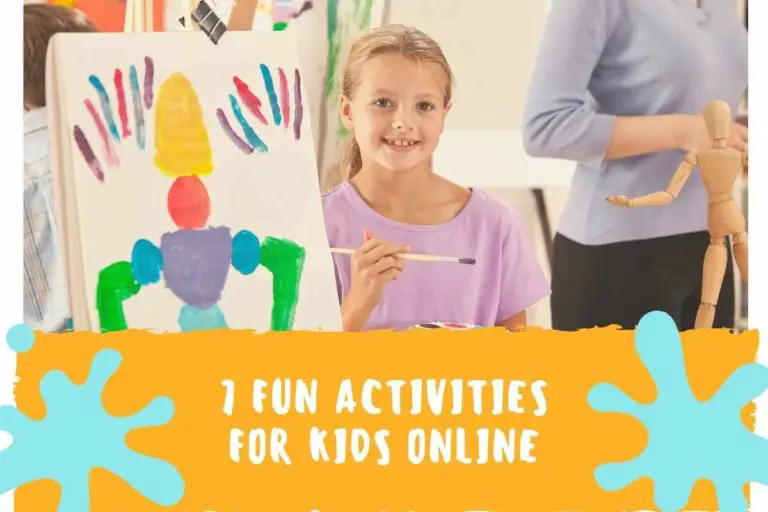Why Playgrounds Are Important
Why Playgrounds Are Important
Playgrounds are important for many reasons. They provide a safe place for children to play, and they also promote physical activity and social interaction. Playgrounds also help to develop motor skills and coordination.
Childhood wouldn’t be the same without playgrounds. If you were a kid, you probably have memories of going to the playground with your siblings or friends and playing on swings, slides, and seesaws. Playgrounds are spaces designed for children to play in.
These spaces can be indoors or outdoors and they usually have equipment that is safe for kids to use. They’re places where children can explore new activities, get exercise, and make new friends. Many schools have playgrounds for their students too!
Playgrounds Are A Gateway To Learning And New Skills
Playgrounds are a great place for kids to learn new skills and discover their environment. The physical play that happens on playgrounds allows children to put what they’ve learned in the classroom into practice.
Kids can use their creativity and imagination as well as develop social skills by playing with other kids. They also get an opportunity to learn important life lessons like how to react when someone else is being mean, how to take turns, or how make friends with someone who is different than you.
Playgrounds give children a chance to explore their surroundings while they’re playing games like tag or hide-and-seek—something we could all stand learning more about ourselves!
Playgrounds Help Children Develop Social Skills Through Play
Playgrounds are a great place to meet new friends and practice social skills.
They’re also a comfortable space to practice communication and conflict resolution skills.
Let’s face it: playgrounds are where kids learn how to be civil with one another, especially when they’re young.
What Is The Point Of A Playground?
Playgrounds are an outdoor space where children can play, run, climb and interact with others. They are designed to be fun and safe for kids of all ages while still being challenging enough to promote physical activity.
Playgrounds offer many benefits for children who use them including.
- Socialization – Children learn how to get along with other people by playing games or sports on the playground together.
- Exercise – Playing in the fresh air is great for your health! Playground equipment provides a variety of ways for your child to get some exercise (for example, climbing up stairs).
- Creativity – The design of most playgrounds allows children’s imaginations to run wild! Some features at play areas are specifically designed so kids can pretend they’re pirates chasing down their enemies or astronauts walking on Mars—you name it!
What Are The Benefits Of Play Time?
Playtime is important for a variety of reasons, but most importantly it’s because it helps children develop those essential life skills.
Social skills: Playing with other children teaches kids how to share, take turns, and play cooperatively. It also helps them learn how to interpret body language and facial expressions (e.g., “this person is angry”) so they know when someone is being aggressive or trying to hurt them—and how to avoid those situations entirely.
Cognitive development: Playing games like hide-and-seek teaches children about cause-and-effect relationships by giving them feedback about what happens when you do something—like hide from someone who is looking for you! It also builds their brains’ ability to plan ahead and make predictions based on past experience.
Physical development: All that running around during recess helps build strong muscles in your legs and core as well as improve balance–which means less risk of falling later in life!
Why Is It Important To Stay In Your Playground?
You should stay in your playground to play. You should not go to the street, or park, or river, or forest or beach or mountains.
This is because the streets are dangerous and if you got hit by a car then you would die and then God would send you to hell for dying in the street. So don’t go on the street.
If anyone tells you that they’re going outside their house, tell them no! And if they say “why?” Tell them: Because I said so! And if they say “why why?” Tell them: Because there are bad people who want us dead and we can’t let them win!
How Do Parks And Playgrounds Help Society?
Parks and playgrounds are important because they help kids to be more physically active, social, cognitive and imaginative. When you go outside and play with your friends in the park or on a playground you will be using all of our senses.
You could be swinging on a swing or climbing on a tree. This gets your heart rate up which is good for your health and makes you feel good too! You can also run around in circles chasing each other like we used to do when we were kids! It’s fun too because it gives us exercise while having fun at the same time!
Another reason why parks/playgrounds are important is because they help children develop social skills through interaction with other children as well as adults who may supervise them (teachers).
They also provide opportunities for young people to practice leadership roles such as patrolling an area where their peers gather safely without adult supervision (such as skateboarders at local skate parks) which encourages responsibility within their community
How Do Playgrounds Help Cognitive Development?
The development of a child’s cognitive skills is an important part of childhood, and playgrounds have been found to help with that development.
A major way this happens is through the socialization aspect of playgrounds. Children learn how to interact socially when they play on playground equipment with other kids their age.
They also learn how to share, take turns, and resolve conflicts peacefully. This can help children become more confident in themselves and prepare them for the real world later on in life.
The creative aspect of playgrounds also helps children develop cognitively by encouraging them to think outside the box. Playgrounds are often made up of unique pieces or materials like wood or metal beams that can be used for anything from climbing walls to bridges over ponds or lakes at parks or beaches where there aren’t any buildings nearby where people would normally go inside just because there wasn’t any other choice available before today!
Why Is Play So Important In Early Childhood Education?
Play is the work of children. It’s how they learn, discover and explore.
Play helps them build confidence and develop social skills. It’s part of the process of building physical skills, cognitive skills (like problem solving) and language skills.
If your child is spending most of their time in front of a screen or device, it can be hard to encourage them to play outside with other kids – but this can help you start that conversation.
Playgrounds Help Children Get Exercise
You may be wondering how to get exercise. Here are some tips.
- Walk up stairs, instead of taking the elevator.
- Use your own two feet to walk from place to place, instead of driving or riding a bike or scooter.
- Take breaks during computer games, and go for a run outside for 10 minutes every hour (use an app like Nike+ Run Club).
You can also make sure that you’re eating healthy food choices and getting enough sleep, which will help your body become stronger and healthier overall!
What Can Children Learn From Playgrounds?
Playgrounds are a great way for kids to socialize and make new friends, which is an important part of their development.
Children learn how to negotiate with other children when playing on the playground. When they play together, they will learn how to solve problems that arise. Playgrounds are also a good place for children to play with their parents as well, which can help them get closer together as a family.
In addition to making friends and solving problems in groups of people, children who use playgrounds will also learn how to solve those same problems on their own by themselves because playgrounds often require some level of independent thought from the users themselves (for example: climbing up stairs without help).
Being physically active has many benefits for kids – not only does it keep them healthy but it also improves their moods! In fact, playing outside increases serotonin levels in your brain which will improve your mood right away!
Playing At The Playground Can Be Safer Than Playing On Your Own
Playgrounds are a great place for kids to play, and they’re especially important for kids who don’t have much free time outside of school. Playgrounds can be safer than playing in your backyard because they’re supervised by adults. Kids also learn from other kids at the playground. They can see how older kids run around or jump on equipment, and then do it themselves!
Playgrounds give children a chance to express themselves through play—they can use their imaginations and make new friends while they’re doing so. Because playgrounds encourage socializing with others, they encourage healthy communication skills as well as self-confidence in children when they interact with their peers at the park.
Playgrounds Have A Lot To Offer Kids And Communities
Playgrounds are a place where kids can be kids. They provide a space for them to get exercise, play with other children, and be creative.
Playgrounds also help build communities by bringing neighbors together to interact with one another.
This is an important role in many cities today, as children born into poor families often face poor health outcomes later in life when compared to their wealthier peers. Studies show that playgrounds are one way that communities have tried to address this problem by giving opportunities for more physical activity for young people who don’t have access to gyms or sports teams at school or home.
Additionally, playgrounds can help improve mental health by providing children with outlets for relaxation and stress relief through playtime activities such as climbing structures and swinging on swingsets (or if you’re really lucky–a merry-go-round).
What Are The Benefits Of A School Playground?
- Socializing:
School playgrounds are a great place for students to socialize and meet new friends. This is especially important for younger children, who might otherwise not have much interaction with their peers outside of school. By making sure that your child has access to other kids, you can help them develop the skills they need to become socially competent adults.
- Exercise:
Physical activity is essential for both physical health and mental well-being, so it’s important that schools provide opportunities for students to get some form of exercise during their school day. A playground can provide this by letting students run around or play sports at recess time.
- Exploring:
It’s also important that children have opportunities to explore their environment in new ways—this will help them learn about the world around them while also developing problem solving skills and critical thinking abilities that they’ll use later on in life when faced with unfamiliar situations (such as moving away from home).
A good playground will allow them room enough so no one gets hurt while still being open enough where there aren’t any obvious hazards such as broken glass bottles lying around nearby which could cut someone badly if stepped upon without realizing first!
Conclusion
Playgrounds have a lot to offer kids and communities. Not only do they encourage physical activity, which we know is good for young bodies, but they also provide opportunities for socialization and learning. The benefits of playgrounds are clear: not just because they help children get exercise, but because they provide the environment needed to develop skills like cooperation, empathy, communication – all things that will serve them well when they enter adulthood. And hey! Who knows? Those skills might even help you out as an adult too!




